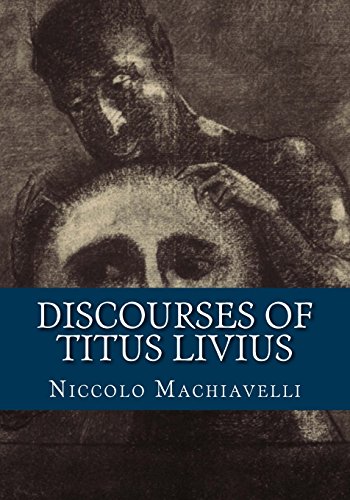


Zalta (ed.Discourses on Livy, by Niccolò Machiavelli. Nederman, Cary, "Niccolò Machiavelli," The Stanford Encyclopedia of Philosophy (Fall 2009 Edition), Edward N.

Written by Sean Hallowell, Department of Music, Columbia University And yet, as any diligent reader of Machiavelli will soon discover, the wealth of insight and depth of reflection in his works more than accounts for his enduring fame and relevance. One of the most frequently vilified scapegoats in all of Western history, to our ears his name has become more or less synonymous with evil and connivance. Given the utterly secular and temporal orientation of his worldview, it should come as no surprise that the reception of Machiavelli by his contemporaries was uneven and capricious. This approach led Machiavelli repeatedly to underscore the importance of the cohesion and organic unity of the state, and to explore tactics for procuring the consent of the governed.

Rather than seeking to justify authority by invoking divine will and religious sanction, Machiavelli approached the problem of governance with what seems much like sober eye of an empirical scientist. And yet, Machiavelli broke decisively with such venerated thinkers as Plato and Aristotle by insisting that the point of departure for political science ought to be the social status quo rather than the utopian “ideal state” imagined by philosophy. Here, The Discourses stand as exemplary Machiavelli takes Livy’s history of Rome as both an object of commentary as well as an impetus to reflection on his own historical situation. If “humanism” is to be broadly construed as the adoption of antiquity as a model for study, then Machiavelli can be safely designated the first “humanist” to write extensively on matters of political policy and governance. Machiavelli’s method in The Discourses is far more anthropological and sociological than it is philosophical, and it is for this reason that he has often been cited as the first properly modern analyst of power. (Wikimedia Commons) Livy's History of Rome was a major influence on Machiavelli's Discourses. Bust of Titus Livius by Andrea Riccio, late 15th C.


 0 kommentar(er)
0 kommentar(er)
